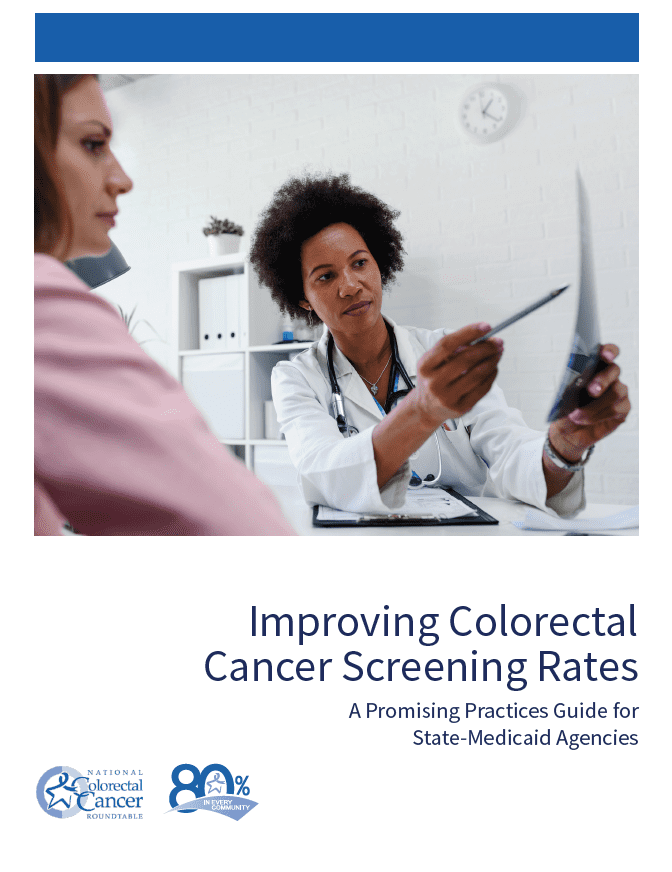Improving Colorectal cancer Screening: Promising Practices for State Medicaid Agencies
This report follows up on a 2015 report commissioned by the NCCRT, Colorectal Cancer Initiatives in Medicaid Agencies—A National Review. That report broadly described the activities being undertaken by Medicaid programs in all 50 states, identifying ten states that had adopted more robust approaches to colorectal cancer screening.
To develop a deeper understanding of how these higher-performing states are approaching the challenges of colorectal cancer screening, follow-up research was conducted with several of the states (Arizona, Maryland, Minnesota, Montana, New York, and Oregon) that had progressed further on their efforts.
Thus, this guide establishes nine practices that have shown sufficient promise to merit consideration by other state Medicaid agencies who wish to enhance their screening efforts for this important population.
The 9 promising practices described within this guide include:
- Define a CRC Metric for State Medicaid Plans
- Support or Mandate Public Reporting of CRC Screening Rates
- Develop an Incentive Program/Value-Based Purchasing Measure for CRC
- Provide Education and Technical Support to Managed Care Organizations and Providers
- Collaborate with State Public Health Staff
- Work Closely with FQHCs that Serve Large Medicaid Populations
- Promote Evidence-Based Strategies and Interventions
- Facilitate Access by Covering Multiple Tests Without Cost-Sharing
- Promote Test Options to Overcome Compliance Barriers, Provider Shortages, Geographic Issues, and Logistical Constraints
Explore More

Increasing Colorectal Cancer Screening in Rural Communities: A Practical Guide
This guidebook is designed to support key community partners in understanding and overcoming the unique challenges and common barriers to CRC screening faced in rural communities.

American Cancer Society: A Colorectal Cancer Screening Guide for Cancer Coalitions
This new guide from the American Cancer Society will help build your coalition's capacity to address colorectal cancer screening.

Clinician’s Reference: Stool-Based Tests for Colorectal Cancer Screening
This revised resource is designed to introduce (or reintroduce) clinicians to the value of stool-based testing for colorectal cancer.
